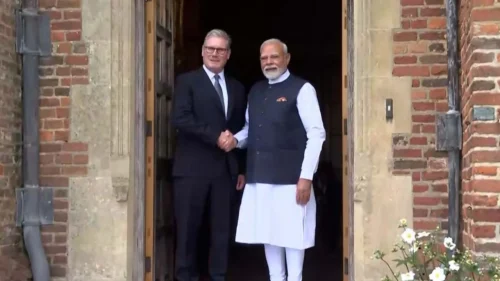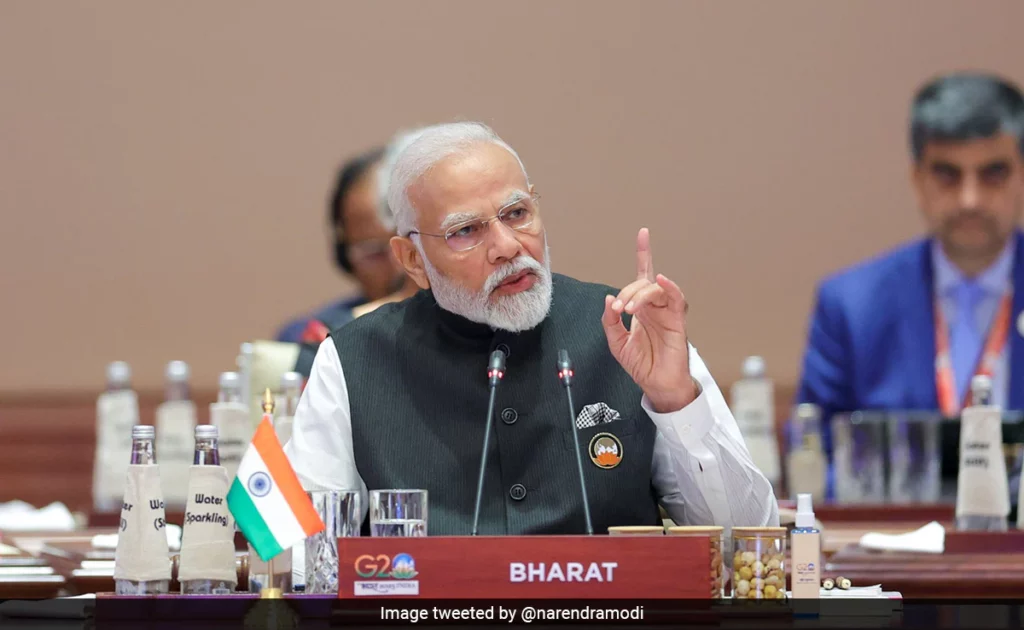Rama Krishna Sangem
After 3-4 years of dillydallying, India could finally sign an FTA (Free Trade Agreement) with the UK. A lot of trade and businesses were waiting for this deal all these years and at long last, the prime ministers of India and the UK could seal the deal in a big relief to the tired negotiators from the two sides.
India and the UK signed the Free Trade Agreement, likely to double bilateral trade by 2030. Commerce Minister Piyush Goyal and British Trade Minister Jonathan Reynolds inked the pact in the presence of PM Narendra Modi and UK PM Keir Starmer, in London on July 24, Thursday.
Key point s of the FTA
The Indian farmer is expected to gain the most from this pact, called Comprehensive Economic and Trade Agreement. India’s agricultural and processed food products will now enjoy duty-free access to British markets.
The agreement proposes that British markets will now open up to Indian farm produce and farmers here will enjoy better benefits than exporters from European countries.
Indian farm products such as turmeric, pepper and cardamom, and processed products like mango pulp, pickles, and pulses, will get duty-free access under the new pact. This would boost farmers’ market reach and provide them with bigger profit margins.
Under the pact, imports from the UK will also enjoy duty-free access to the vast Indian market. The government says it has taken steps to safeguard the sensitive agricultural sector from British imports. There will be no tariff concessions on dairy products, apples, oats, and edible oils to ensure domestic farmers are not affected.
The Free Trade Agreement will also benefit India’s fisheries sector, particularly in coastal states such as Andhra Pradesh, Odisha, Kerala, and Tamil Nadu. Exports such as shrimp, tuna, fishmeal, and feeds, which currently attract duties ranging from 4.2 per cent to 8.5 per cent in the UK, will now be able to access the British market duty-free.
Exporting labour-intensive products such as leather, footwear and clothing will now be easier, and the cost of whiskey and cars imported from the UK will reduce. Other imported goods, such as medical devices, will also be cheaper in India now.
Modi, Starmer hail the deal
After the signing of the pact, Prime Minister Modi said it will reduce “cost of doing business” and enhance “confidence of doing business”. This pact between two major economies, he said, will also give strength to global stability and prosperity. Prime Minister Modi also referred to the UK’s support in the aftermath of the Pahalgam terror attack and thanked Prime Minister Starmer for his support in the fight against terrorism. He also expressed his condolences over the deaths of UK nationals in the plane crash in Ahmedabad last month.
UK Prime Minister Starmer described the trade pact as “historic”. “Both countries will see a boost in wages and living standards,” he said, adding that the trade deal will boost whiskey distillers in Scotland. “It will bring down prices of Indian clothes, shoes, foods for British citizens.”


